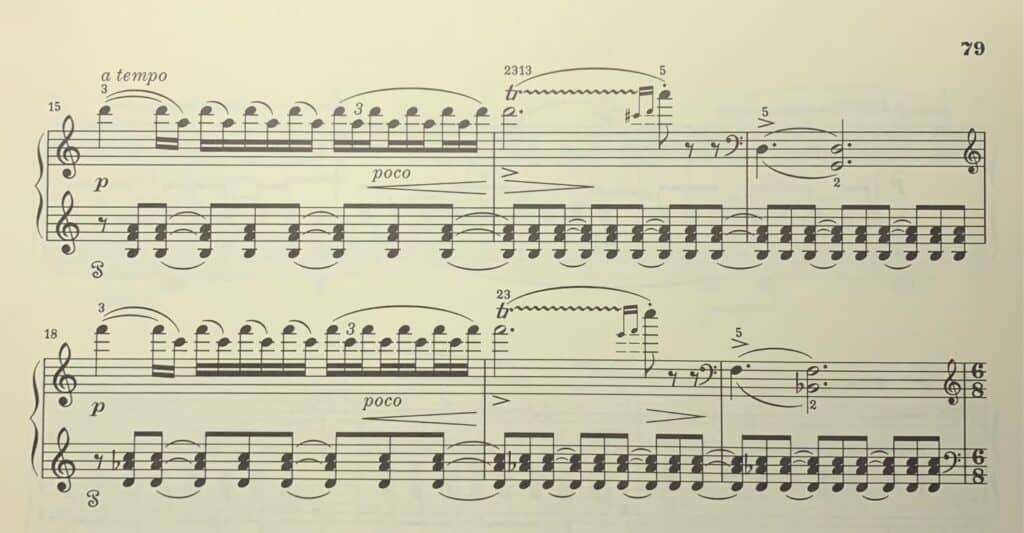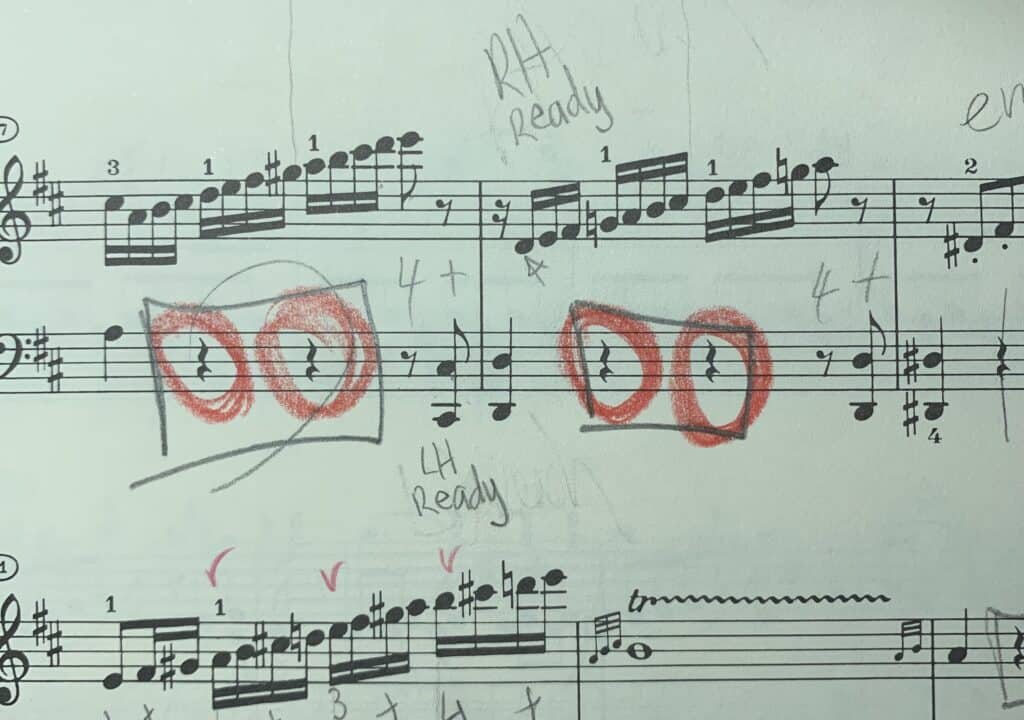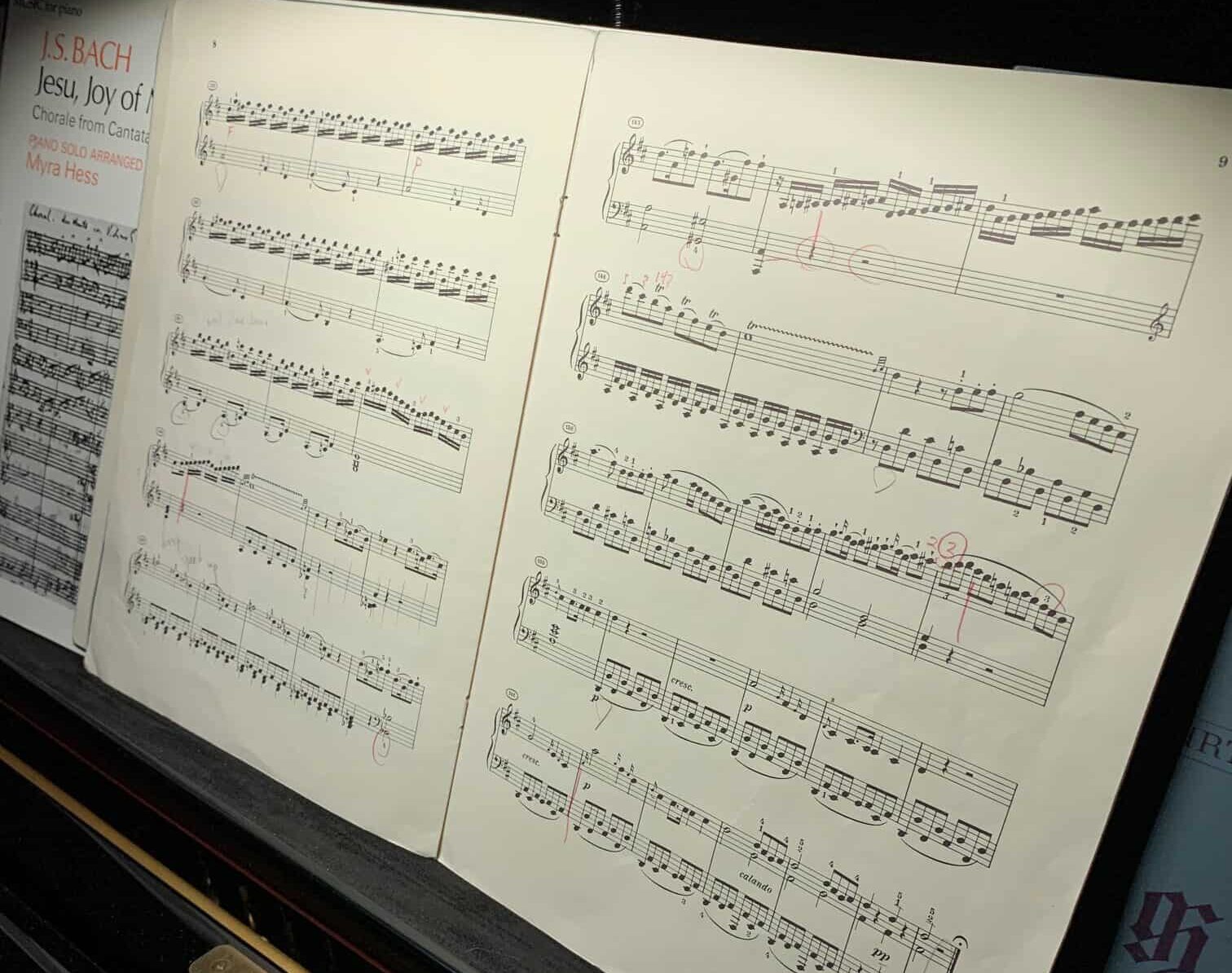Most people who have learned to play the piano did so at early age, free from the time-consuming responsibilities of adulthood. For others who learn to play later in life, it can be a challenge to make consistent progress while juggling a hectic schedule.
This article will outline some tips and suggestions that any aspiring classical pianist can use to help them progress in the shortest amount of time. Let’s begin!
Patience
Starting off a list of time-saving piano tips with patience might induce eye rolls, but hear me out. Whether studying with a teacher, or on your own through a means such as YouTube, patience is essential, especially if you’re short on time. Much like a patient farmer who cultivates the soil, plants the seeds, and then regularly waters them, learning to play the piano requires a similar approach to make progress.
It’s a natural tendency to rush when time is limited, but when learning to play an instrument, rushing can have more negative consequences than positive, potentially leading to burnout. By keeping a patient mindset, we are more likely to avoid setting our expectations too high. When our expectations are balanced and reasonable, we are more likely to stick with a pursuit. Ultimately, patience saves us time in the long run.
Consistency
Consistency is perhaps the most important tip for pianists of any age or skill. The great pianist and teacher Ignacy Paderewski once said “If I don’t practice for one day, I know it; if I don’t practice for two days, the critics know it; if I don’t practice for three days, the audience knows it.”
Yes, consistency is vital no matter your level, but especially when time is at a premium. If you only have 15 minutes a day to practice, it is vital those 15 minutes are not only spent wisely, but then reinforced and reemphasized the next day if at all possible. People who are fortunate enough to have hours a day available to practice an instrument can afford to learn at an inefficient pace if they so choose.
For most people however, time is limited, so we need to make it count. 15 minutes of quality practice can accomplish a lot if done consistently, which brings us to our next tip…
Slow Practice
As mentioned in our first tip, human nature suggests that when we are limited on time, we should speed up. Avoid this when first learning to play the piano!
While practicing and playing fast in itself is not a bad thing, and sometimes a necessity for more advanced musicians, doing so before your technique is developed can bring about many negative results, such as inaccuracy (“sloppy” playing), an unsteady rhythm, and an undependable memory to name a few. In other words, by rushing during our practice, we are in fact not accomplishing more, nor are we saving time, as it will take additional time in the future to undo the bad habits that are developed.
Saving time learning the piano is more about avoiding bad habits which eventually need to be unlearned and “fixed” later on.
By practicing slow, we eliminate mistakes, increase our accuracy, and are better able to maintain a consistent fingering, all which help us progress more efficiently in the shortest amount of time possible.
So we’re patient, determined to be consistent, and made a vow to practice slow and accurately, that’s great news! But what should we practice when time is limited?
Small, manageable portions which accomplish the most
Whether you’re an absolute beginner trying to learn the piano, or you’ve played for a few years and are trying to learn a particular piece of music, 10-15 minutes of practice accomplishes the most when it’s focused on the smallest number of notes. So rather than hurriedly rushing through a piece of music from start to finish, we will accomplish more by instead isolating a few measures, even just a phrase or two in some cases, and focusing our energy on these smaller, more manageable portions.
Is there a small succession of notes in the left hand which causes you to slow down? Work on these notes when time is limited!
Are you trying to memorize a score, but one rogue measure keeps stumbling you? Work on this measure when time is limited!
If you have to slow down while playing a piece of music for any reason, you will save time by focusing on the 5% of the score which gives you trouble, rather than the 95% which you can play fine.
In the real world
Listed below are a couple of my own examples where I’ve applied all of the tips above to make progress on repertoire with a limited amount of practice time. Regardless of your skill level, the same principles can be applied to help you save time and progress faster.
Edvard Grieg’s Lyric Piece Op. 54, No. 4 “Notturno”
Edvard Grieg’s Lyric Piece “Notturno” mostly fits well under the hand, however measures 15-20 can be challenging to sync the beats up while maintaining a strict tempo. These few measures gave me the most trouble, so I would focus on these when time was limited, practicing slowly enough to include all dynamic markings along with correct fingering:

Mozart Rondo in D Major
Oh fun 🙂 As you might be able to tell, this is a work that’s required every trick in the book for me personally. I could find maybe a dozen examples from the score which I’ve isolated and worked on when I only had 10-15 minutes to practice, such as measures 47-48:

In Summary
Learning to play the piano is a very fulfilling endeavor, one that can provide you a lifetime of enjoyment. However, it takes dedication and persistence to reap the rewards. If you are trying to learn but are limited on time, remember these key points:
- Be patient, you are learning a new language, that of music. It requires time for everything to “click.” Trying to cut corners by glossing over mistakes or weaknesses with your technique early on will impede your progress, and ultimately require additional time to correct.
- Be consistent, many start learning the piano only to give up and quit before seeing the fruits of their labor. Inconsistent practice adds to the time needed to learn the instrument. Have complete confidence everything will “click” for you too in due time if you consistently practice.
- Practice slow to help build a strong foundation, especially in the early stages of learning the piano. Avoid the tendency to always play fast, which often results in sloppy, inaccurate playing, as well as other issues which must be corrected later on.
- Use your time wisely, especially when it is limited. Use short 10-15 minute practice sessions to isolate problem areas, whether it’s playing a chord, scale, or a few measures from a score. Repeatedly practicing a portion of music poorly for 10 minutes often negatively impacts your progress.
Whatever your skill level at the piano or the amount of time available for practicing, the point remains the same: patiently work in a slow manner on small goals, focusing on the quality of our practice, and do it consistently! If you do, even the busiest person can find success and enjoyment in learning the piano.
